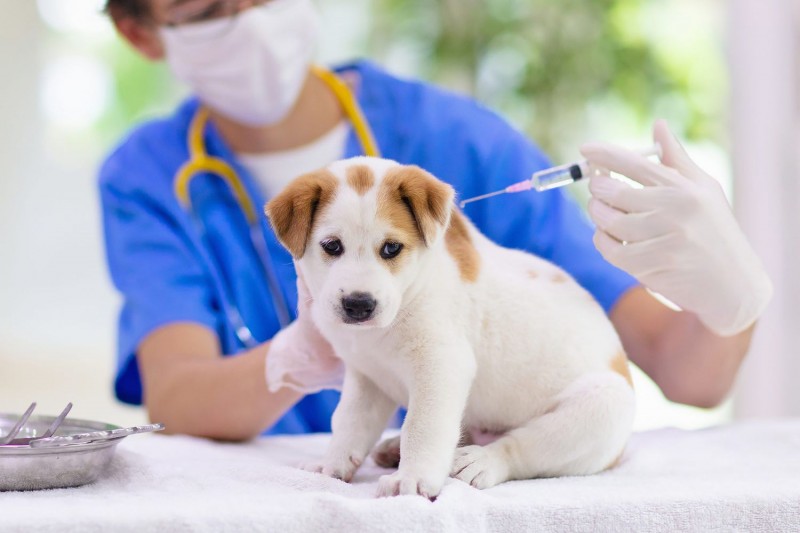
Rabies, a deadly viral disease, poses a significant threat to both humans and animals. Among our furry companions, dogs are particularly susceptible to this menacing ailment. To safeguard them, anti-rabies vaccines have been developed. In this comprehensive guide, we will delve into the effectiveness of the anti-rabies vaccine for dogs, shedding light on its importance, administration, and efficacy.
Before delving into the vaccine's effectiveness, it is crucial to grasp the gravity of rabies. Rabies is a zoonotic disease, meaning it can be transmitted from animals to humans. It is primarily spread through the saliva of infected animals, most commonly through bites. Once symptoms appear, rabies is almost always fatal, making prevention vital.
The anti-rabies vaccine is a biological preparation that stimulates a dog's immune system to produce antibodies against the rabies virus. It is the most effective means of preventing rabies in dogs.
There are different types of anti-rabies vaccines available, including killed (inactivated) and modified live vaccines. Each has its pros and cons, which we will explore.
The anti-rabies vaccine is highly effective in preventing rabies in dogs when administered correctly. It provides robust and long-lasting immunity.
The effectiveness of the vaccine depends on following proper administration protocols. Veterinarians play a pivotal role in ensuring the vaccine is administered correctly.
Dogs typically receive a series of primary vaccinations, followed by booster shots to maintain immunity. The timing and frequency of these shots are critical for sustained effectiveness.
Effectiveness relies on dog owners' compliance with vaccination schedules. Skipping booster shots can put dogs at risk.
Proper storage of the vaccine is crucial. Mishandling or using expired vaccines can lead to reduced effectiveness.
Certain pre-existing health conditions in dogs can affect vaccine efficacy. Consultation with a veterinarian is essential.
Vaccinating dogs is not only about their safety but also about protecting human health. Rabies transmission from dogs to humans is a genuine concern.
In many regions, including the United States, rabies vaccination for dogs is a legal requirement. Compliance ensures the safety of both dogs and their human companions.
Anti-rabies vaccination campaigns for dogs play a pivotal role in global efforts to eradicate rabies. These efforts are making a significant impact in regions where rabies is endemic.
Vaccinating domestic dogs also helps protect wildlife from rabies. Infected dogs can transmit the disease to wildlife populations.
Apart from vaccination, responsible pet ownership, including leash laws and proper supervision, contributes to rabies prevention.
Promptly reporting and quarantining dogs showing rabies-like symptoms is crucial for containment.
Ongoing research is focused on improving rabies vaccines, potentially making them more effective and long-lasting.
Public education about the importance of rabies vaccination is vital for increasing compliance. In conclusion, the anti-rabies vaccine for dogs is undeniably effective when administered and managed properly. It serves not only as a shield for dogs against a fatal disease but also as a safeguard for human health. To ensure the vaccine's maximum efficacy, responsible pet ownership and compliance with vaccination schedules are imperative. With continued efforts, we can strive towards a world where rabies is but a distant memory.
Stomach ache and gas problem will go away, this spice kept at home is full of properties
Fitness Tips: Want to stay fit without going to the gym? Do four activities at home